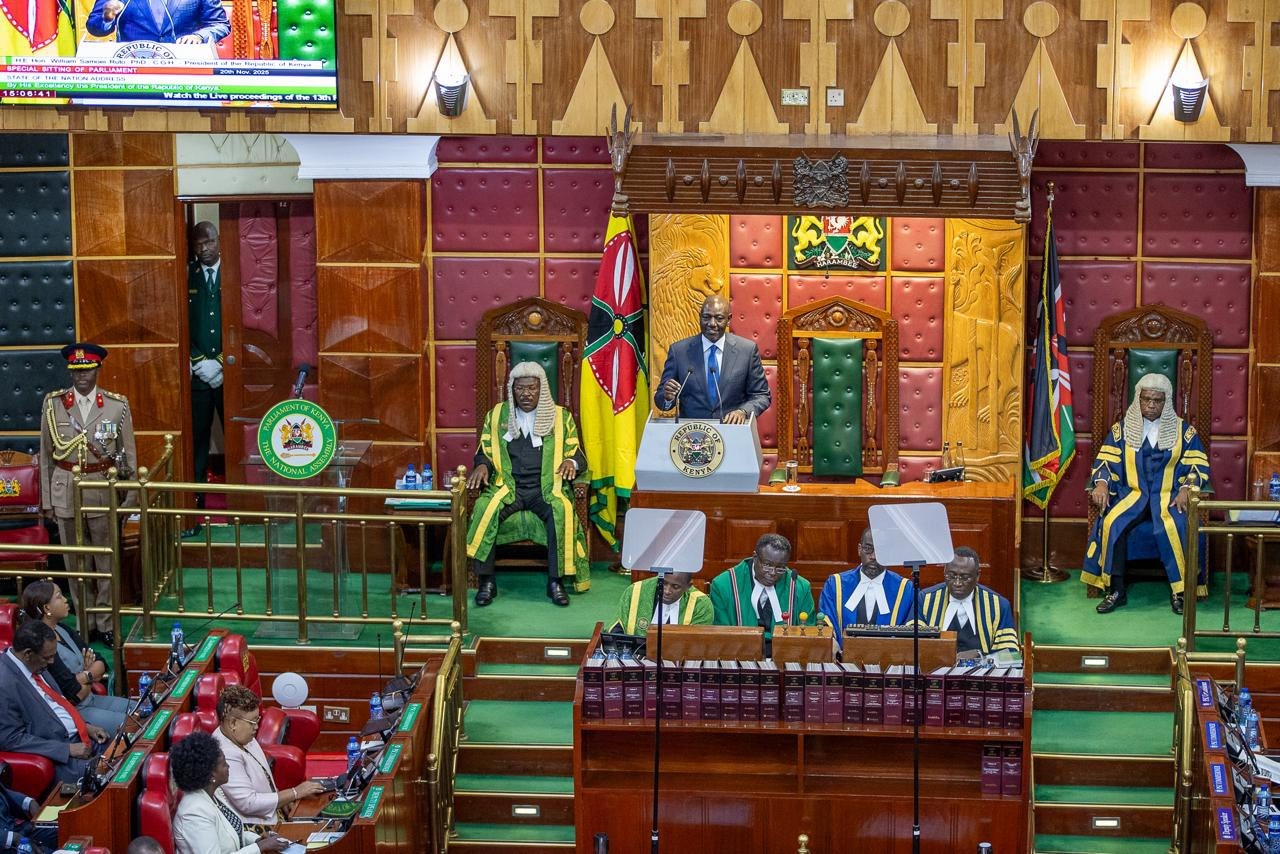
President William Ruto signs 4 bills into law at State House on November 21, 2025 /PCS
President William Ruto has officially signed into law the Provisional Collection of Taxes and Duties (Repeal) Act, a significant reform that sought to remove an outdated colonial‑era statute from Kenya’s tax laws.
According to a legislative brief from Parliament, the Provisional Collection of Taxes and Duties (Repeal) Bill, 2025 originated in the Thirteenth Parliament (Fourth Session) under the National Assembly and was among the bills forwarded to President Ruto for assent in November 2025.
The repeal was carried out on Friday, November 21, 2025, alongside three other major bills as part of Ruto’s legislative agenda.
“The Provisional Collection of Taxes and Duties (Repeal) Act expunges from the laws of Kenya the 1929 statute that previously allowed Parliament to introduce taxes before full legislation was enacted," a post in the President's handle stated.
The Bill was sponsored by Majority Leader and Kikuyu Member of Parliament, Kimani Ichung’wah.
It was published on May 6, 2025, via Kenya Gazette Supplement No. 62 and formally introduced in the National Assembly on 23 September 2025.
After undergoing the full House process, the Bill was passed on November 18, 2025, without amendments, signalling parliamentary consensus on the need to remove the obsolete statute.
At the centre of the repeal is the goal of aligning Kenya’s statute book with the Constitution.
The brief notes that the old law—the Provisional Collection of Taxes and Duties Act, Cap. 415—had already been declared unconstitutional in the 2018 High Court decision in Okiya Omtatah Okoiti v Cabinet Secretary, National Treasury & 3 others.
"The Act, which commenced on November 17, 1959, is an outdated legislation which previously allowed the Cabinet Secretary for the National Treasury to provisionally collect taxes proposed to be levied in a revenue-raising Bill during the period between the introduction of the Bill and its passage," it reads.
In practice, this meant tax measures contained in a Finance Bill could take effect before being debated and approved, effectively suspending Parliament’s core mandate to impose taxes through law.
Parliament found this contrary to Articles 93(1), 94(1), 95(3), 96(2), and 109–113 of the Constitution, which define legislative authority and the proper process for enacting tax measures.
The newly signed Act therefore repeals an outdated statute to “clean up the statute book” and reinforce the constitutional requirement that taxes may only be imposed through legislation duly passed by Parliament.
By doing so, the government closes the door on provisional tax collection powers and strengthens constitutional safeguards around public finance.
The other new laws include the Capital Markets Amendment Bill 2025, the County Governments Additional Allocation Bill, and the Government-Owned Enterprises Bill 2025.














